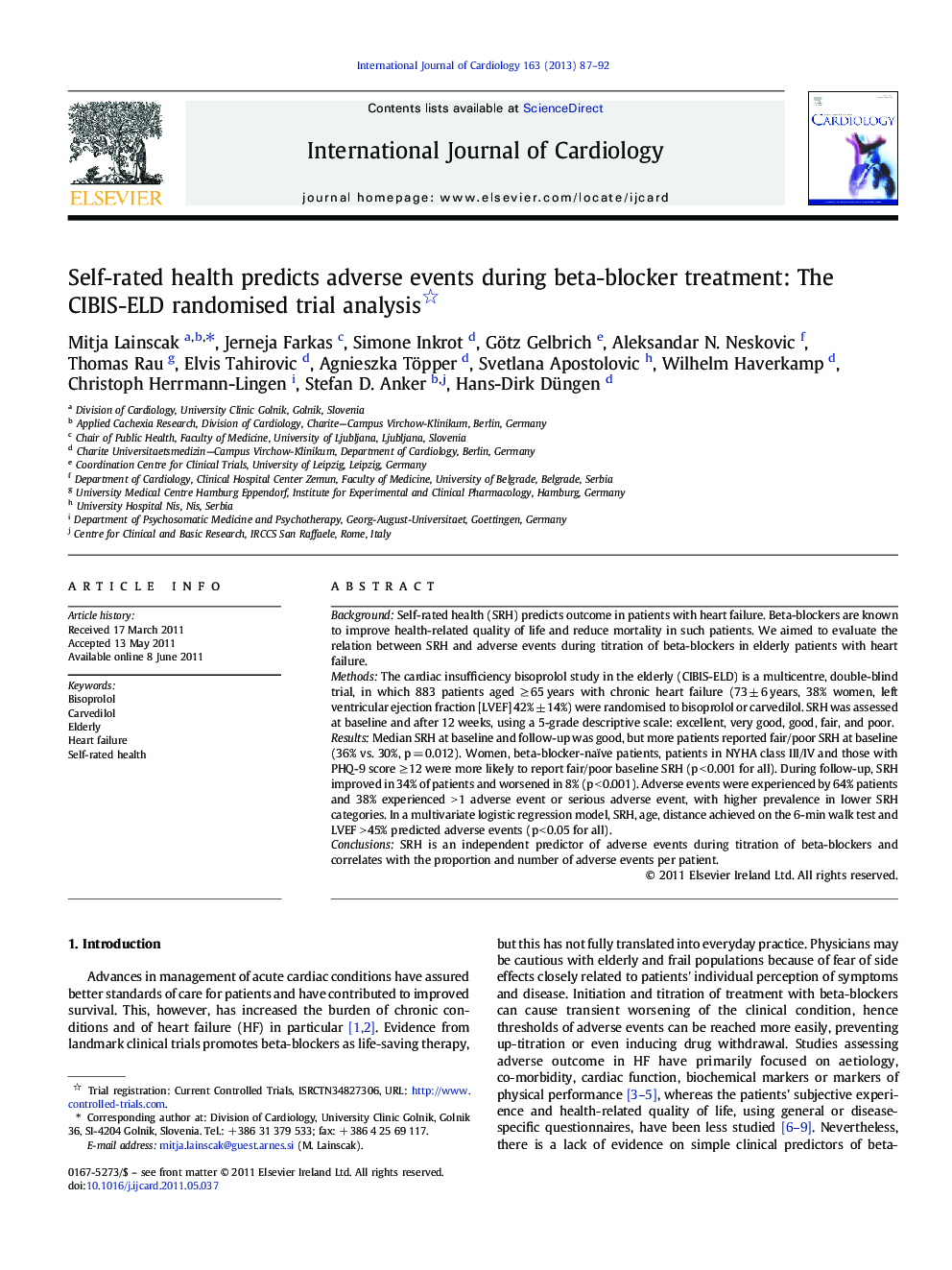| Article ID | Journal | Published Year | Pages | File Type |
|---|---|---|---|---|
| 5976351 | International Journal of Cardiology | 2013 | 6 Pages |
BackgroundSelf-rated health (SRH) predicts outcome in patients with heart failure. Beta-blockers are known to improve health-related quality of life and reduce mortality in such patients. We aimed to evaluate the relation between SRH and adverse events during titration of beta-blockers in elderly patients with heart failure.MethodsThe cardiac insufficiency bisoprolol study in the elderly (CIBIS-ELD) is a multicentre, double-blind trial, in which 883 patients aged â¥Â 65 years with chronic heart failure (73 ± 6 years, 38% women, left ventricular ejection fraction [LVEF] 42% ± 14%) were randomised to bisoprolol or carvedilol. SRH was assessed at baseline and after 12 weeks, using a 5-grade descriptive scale: excellent, very good, good, fair, and poor.ResultsMedian SRH at baseline and follow-up was good, but more patients reported fair/poor SRH at baseline (36% vs. 30%, p = 0.012). Women, beta-blocker-naïve patients, patients in NYHA class III/IV and those with PHQ-9 score â¥Â 12 were more likely to report fair/poor baseline SRH (p < 0.001 for all). During follow-up, SRH improved in 34% of patients and worsened in 8% (p < 0.001). Adverse events were experienced by 64% patients and 38% experienced > 1 adverse event or serious adverse event, with higher prevalence in lower SRH categories. In a multivariate logistic regression model, SRH, age, distance achieved on the 6-min walk test and LVEF > 45% predicted adverse events (p < 0.05 for all).ConclusionsSRH is an independent predictor of adverse events during titration of beta-blockers and correlates with the proportion and number of adverse events per patient.
